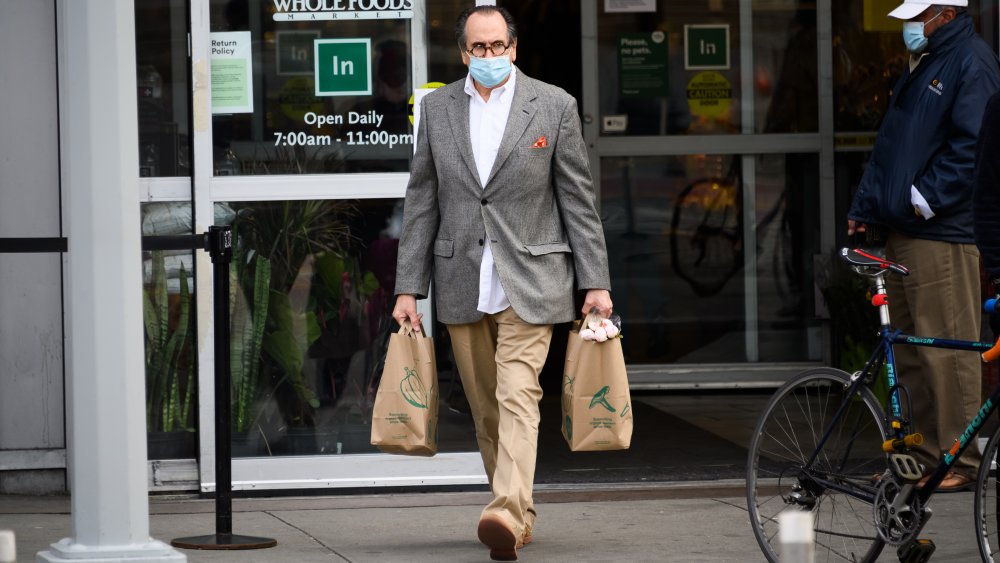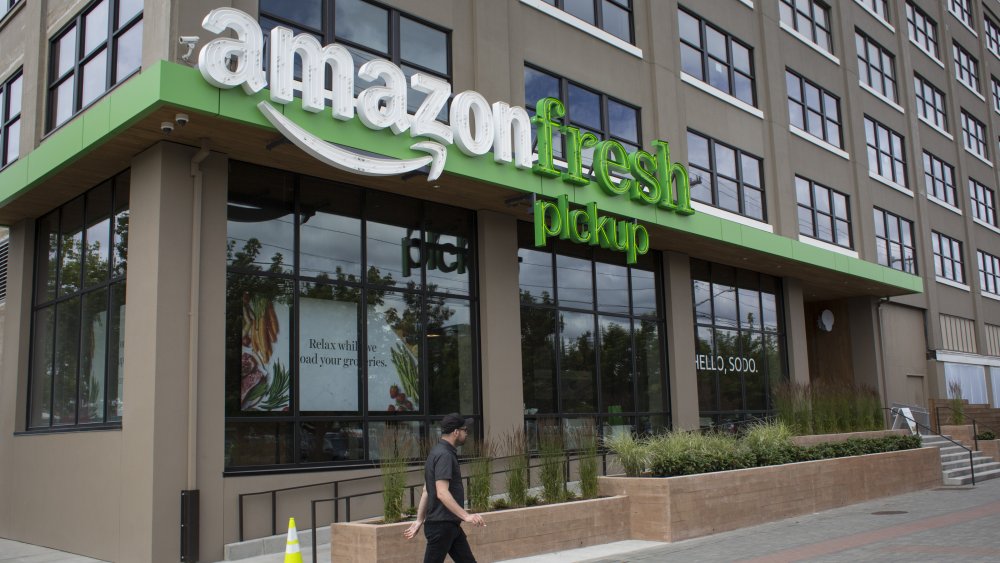The Pandemic Has Affected This Grocery Chain Worse Than It Has All Others
Despite the increase in grocery shopping inspired by the coronavirus pandemic, as more people cook lunches and suppers at home, not all food outlets have enjoyed the same economic boost. Whole Foods, as Bloomberg's Matt Day wrote in The Philadelphia Inquirer on October 7, experienced a 25 percent drop in traffic this September, compared to the year previous. This is a much steeper decline than that seen by comparable chains. Day quotes Michael Maloof, a consumer habits tracker at Earnest Research, who said, "Everyone is buying more everywhere, but total customers are actually down for Whole Foods."
While parts of the issue may lie with Whole Foods' general priciness and reputation for being a store you visit for specific items, as opposed to the week's essentials, Amazon seems more at fault for the store's broader failings. Day notes that after acquiring Whole Foods, Amazon did as Amazon does: promoted online shopping with a horde of Amazon shoppers fulfilling the orders.
In a Bloomberg analysis piece published by msn, Sarah Halzack points out that after Amazon's attempts to cut Whole Food's prices, their flooding of other grocery stores "seems like a concession that Amazon is not going to be able to turn Whole Foods into an everyman's grocer." And if a platform, project, or website, cannot exert a monopolistic grasp on the consumer base, Amazon tends to grow bored with it. Their focus runs completely against the brand image of Whole Foods.
A fresh approach
Any ill feelings between Whole Foods founder and still CEO John Mackey and Amazon, however, are not aired in public. In an interview with Fortune's podcast Leadership Next, Mackey was asked about navigating the companies' merger. He responded, "Amazon has some different values than Whole Foods, but they haven't tried to jam Amazon culture down our throat ... I love most things about Amazon. But I don't love everything about Amazon." A very political answer that is not shared by others.
In 2019, The Guardian interviewed a series of anonymous Whole Foods Team Members — employees — about the pressurized environment and the erosion of the empowered culture Whole Foods previously championed. The biggest issue aired is the prevalence of Amazon Prime in every aspect of the store: "Whole Foods is not an independent company that has an investment or something from Amazon. It is a grocery retail outpost for Amazon, and it's there to push online sales, Prime memberships and Prime devices." Signs and cashiers have been reoriented to push for Amazon Prime sales regardless of whether or not the customer in question is a member.
This aligns with Amazon's recent push to open physical locations for Amazon Fresh, as reported in The Motley Fool last August. Amazon prioritizes an Amazon-like experience, which Whole Foods cannot offer. So, Amazon has changed tactics while still attempting to force Amazon Prime upon Whole Foods, including deploying it as a Prime Day initiative.

